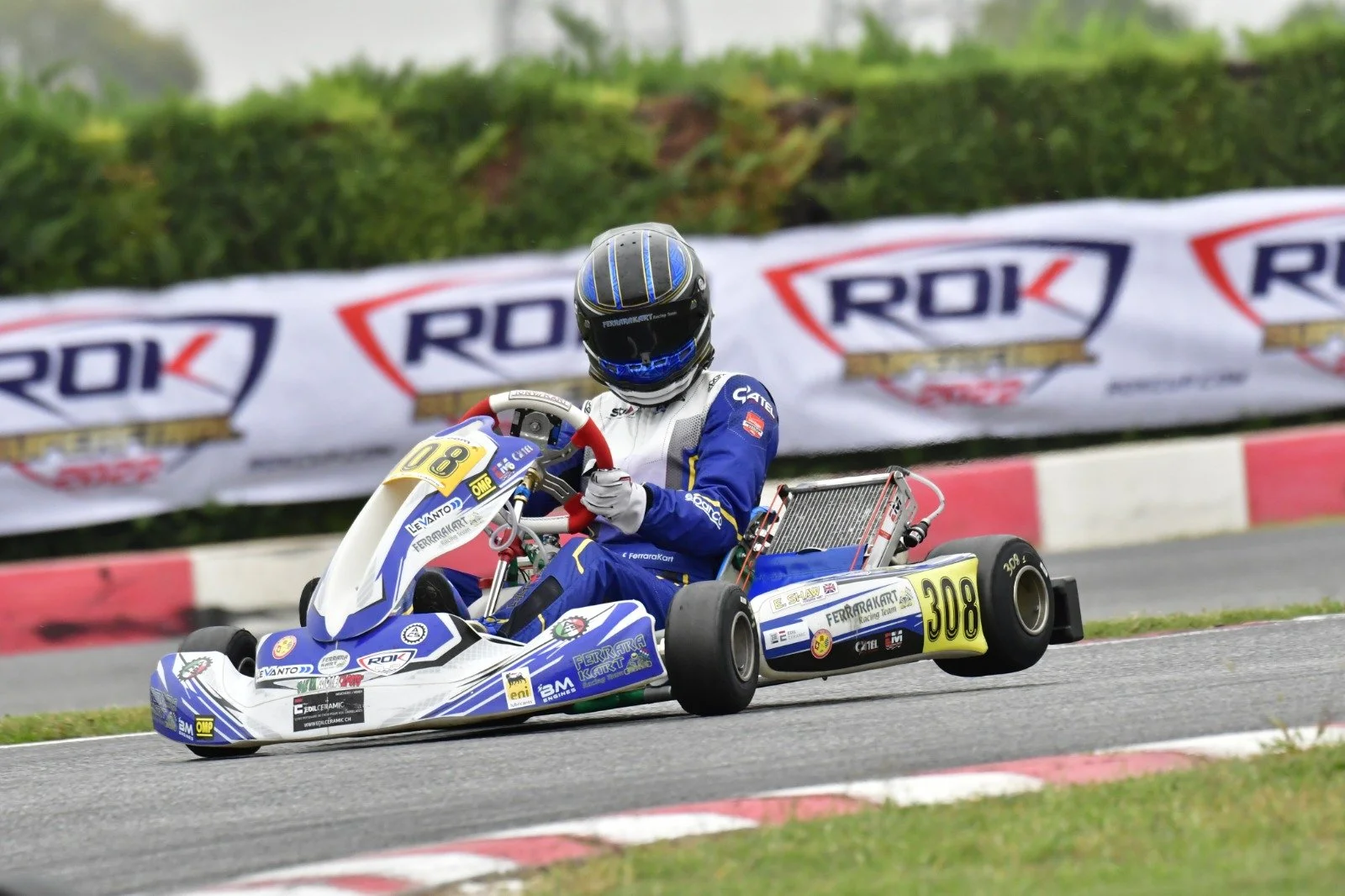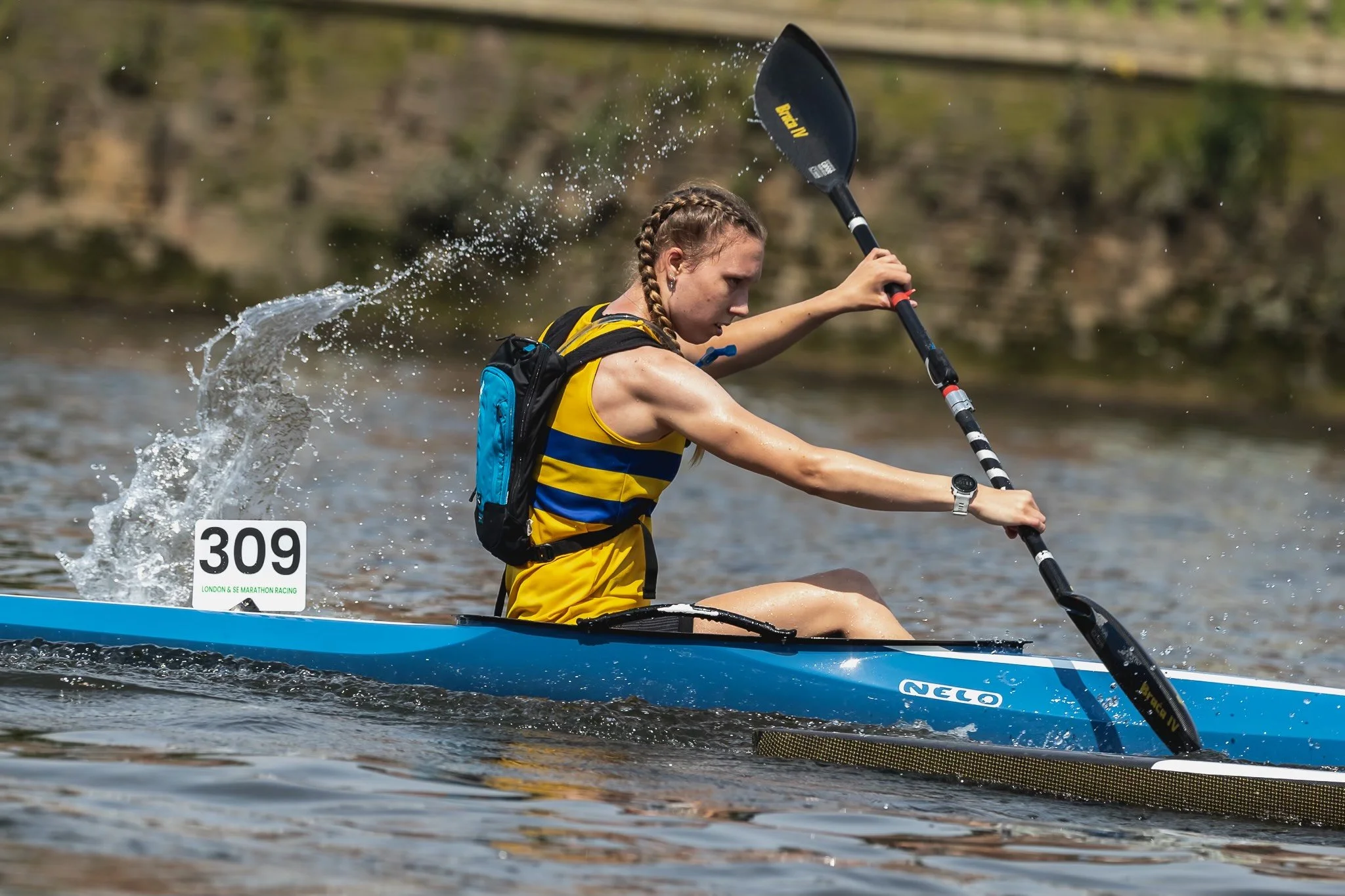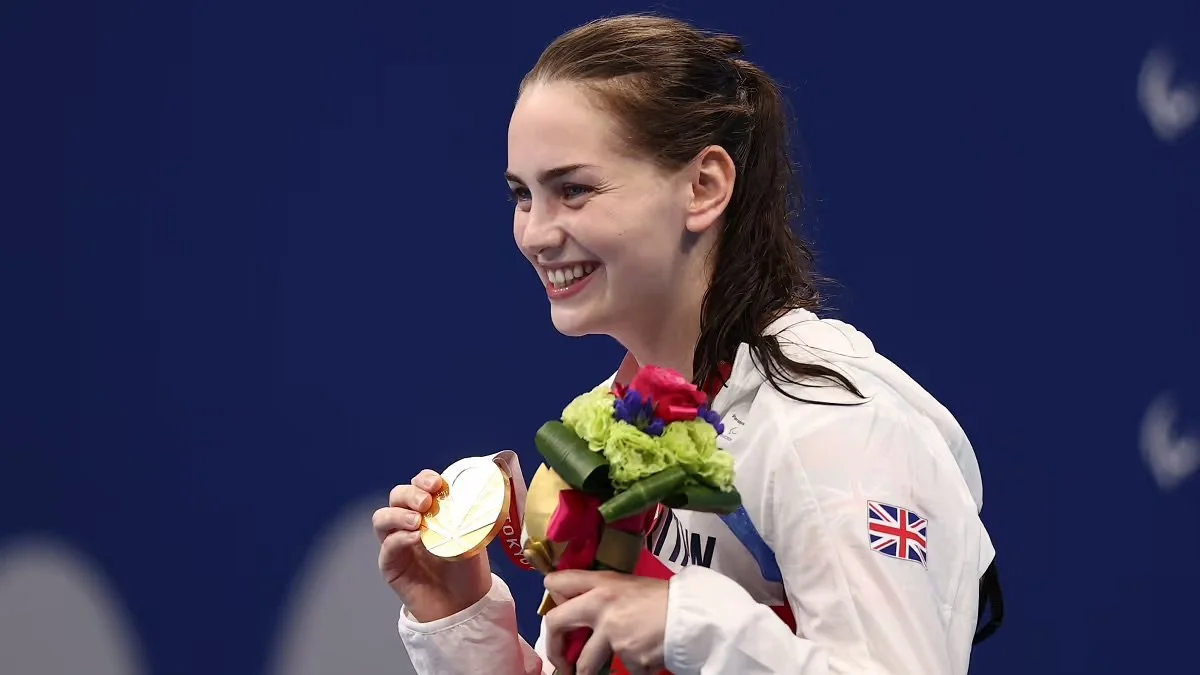Neurodiverse Sport articles
Search for specific content…
Two Sides of the Same Coin: Understanding Sam Smith’s Tennis Journey Through a Neurodivergent Lens
Sam Smith, a former British No. 1 tennis player and now a leading broadcaster, opens up about navigating elite sport as an undiagnosed autistic person. In this powerful blog by Olivia Rae, Sam’s story unfolds as a series of contrasting truths: discipline and disruption, calm and chaos, structure and overwhelm. Her journey reminds us that what’s often seen as “difficult” can in fact be the root of brilliance—when understood through a neurodivergent lens.
Benny Howell: Redefining Cricket With ADHD Creativity
In this week’s Neurodiverse Sport spotlight, professional cricketer Benny Howell reflects on how ADHD shaped his identity, style, and success on the pitch. Known for his unorthodox bowling and creative mindset, Benny shares how hyperfocus became his superpower—and how shifting away from rigid sporting norms has helped him and others thrive.
Status Quo: Peter’s Story of Passion, Persistence, and Pushing Back Against the Mould
Peter Barnes never received a formal diagnosis—but his reflections on ADHD and neurodivergence offer powerful insight into how self-understanding, adaptability, and resilience can reshape both life and sport. From exclusion in school PE to carving out a lifelong passion for cycling, Peter’s story challenges rigid sporting systems and calls for more human-centred, flexible approaches to coaching and inclusion.
“From Overwhelm to Action” — Reflections from the Neurodiverse Sport Panel
Bright studio lights, honest storytelling, and a line-up of elite athletes turned Neurodiverse Sport’s first live panel into a master-class on neuroinclusion. From Sam Smith’s sensory challenges on-air, to Brooke Hendrix’s ADHD openness in a football changing room, to Greg Halford’s autistic hindsight, the evening moved from overwhelm to collective action—reminding us that coaching curiosity and safer environments are the real performance enhancers.
“Ripples in the Water” — My Neurodivergent Journey to the Neurodiverse Sport Event
In this moving reflection, former international cricketer Olivia Rae shares her experience of attending the first in-person Neurodiverse Sport event during Neurodiversity Celebration Week 2024. Through personal stories of survival mode, miscommunication, and finally, recognition, Olivia shows how neuroinclusive environments can create powerful moments of connection and change. This is a story of ripples becoming waves—and how small acts of understanding can leave a lasting impact.
Sarah Javaid - Autism, Cycling & Me
In this honest and empowering reflection, Sarah Javaid—founder of Cycle Sisters—shares how discovering her Autism at age 40 helped reframe a lifetime of struggle. Cycling, once a simple mode of transport, has become her space for healing, joy, and autonomy. Sarah’s story is one of self-understanding, community leadership, and the power of inclusive movement. Her words challenge stereotypes and inspire a broader vision of what it means to thrive.
Unapologetically Living YOUR Life and Mapping the Way Forward
In this moving reflection, former international cricketer Olivia Rae shares how her late Autism and ADHD diagnosis reshaped not just how she saw herself—but how she lived. Told with honesty and grace, Olivia’s story challenges traditional ideas of success in sport and life. From burnout to balance, survival to sustainability, this is a journey about reclaiming identity, redefining what works, and finally, living unapologetically.
A Story of Strength and Support: Michael Barton’s Journey
Michael Barton is a national Judo medallist, data analyst, author, and Autistic advocate who proves that structure, support, and self-awareness can be a winning combination. Diagnosed early in life and initially non-verbal, Michael’s journey challenges assumptions about neurodivergence in sport—showing how explicitly taught skills, routine, and the right environment can empower Autistic athletes to thrive.
Coaching with Compassion: Kyle Gookins on Ego, Inclusion, and Emotional Intelligence in Sport
In this powerful and heartfelt interview, former NCAA football coach Kyle Gookins shares how becoming a parent to an Autistic son transformed not only his life, but also his coaching philosophy. From high-performance pressure to person-centred practice, Kyle speaks with honesty about ego, emotional intelligence, and the practical shifts coaches can make to better support neurodivergent athletes. A must-read for anyone passionate about inclusive sport.
'The Unique Privilege of Working with an Athlete with Diagnosed or Suspected Autism Spectrum Condition'
In this insightful blog, Dr Caz Nahman—child and adolescent psychiatrist and teaching lead at Oxford University—shares a composite case study based on her real-world experience supporting Autistic athletes. Through the story of Katie, a national-level swimmer navigating university life, we see how missed communication, misunderstanding, and well-intentioned coaching can impact a neurodivergent athlete’s wellbeing and performance. The blog offers practical guidance on building trust, improving communication, and creating inclusive environments where Autistic athletes can thrive.
“Different. But it’s good that I’m different.” — Elliott Shaw, International Karting
Elliott Shaw is a 20-year-old British racing driver competing at the top level of karting—and he’s proudly Autistic and ADHD. In this refreshingly direct interview, Elliott shares how his neurodivergence fuels his attention to detail, resilience, and drive to win. He also reflects on bullying, sensory challenges, and why finding the right team makes all the difference. For Elliott, racing isn’t just a sport—it’s a way to channel his energy, build self-worth, and stay balanced. A powerful story of difference as strength.
Finding Strength Through Equine Therapy: James’s Story
James Lovatt’s story is one of misunderstanding, vulnerability, and shame—until he began to understand himself through the lens of neurodivergence. Now a competitive rider and passionate advocate for neurodiversity, James reflects on the toll of masking, the dangers of unsafe systems in sport, and the healing power of self-awareness and support.
Nerys Hall – Learning to Work With ADHD, Not Against It
Junior European medallist and GB kayaker Nerys Hall opens up about her journey with ADHD in high-performance sport. From masking and meltdowns to resilience and self-acceptance, she shares how diagnosis helped her work with ADHD, not against it. Her message is clear: when athletes are understood and supported, they don’t just survive—they thrive.
The Formula for Thriving – A Neurodivergent Path to Performance
In part two of triathlete Tom Epton’s journey, we explore the formula behind his success—freedom, structure, curiosity, and purpose. Diagnosed with ADHD as a child, Tom shares how understanding his brain has allowed him to thrive in elite sport, education, and business. This blog highlights the hidden strengths of neurodivergent athletes and what they need to succeed.
From “Naughty Kid” to National Competitor
From school exclusions to international podiums, triathlete Tom Epton shares how a childhood diagnosis of ADHD shaped his journey in life and sport. His reflections on behaviour, belief, and building the right support system are a powerful reminder of what neurodivergent athletes can achieve when they're truly understood.
Staying the Course in a System That Wasn’t Built for Her: Michelle’s Story
Michelle Lau is a world-ranked amateur golfer, software developer, and proud Autistic woman. Her journey into elite disability golf began after seeing the work of Neurodiverse Sport—proof that visibility and representation can change lives. In this powerful blog, Michelle opens up about delayed diagnosis, sensory overwhelm, masking, and what it took—physically and emotionally—to finish her first world-ranked tournament. Her story reminds us that success and struggle often walk hand in hand.
Coaching With Curiosity and Care: Creating Neuroinclusive Environments
Abi Chamberlain, former England Women’s Rugby 7s Captain and current London Irish Women’s Coach, doesn’t label herself a neuroinclusive coach—yet her impact speaks volumes. Her approach, rooted in curiosity and care, creates a psychologically safe environment where all athletes can thrive. In this blog, Abi shares her coaching philosophy, reflects on what it means to unlock performance across diverse minds and bodies, and offers practical insight into making sport more inclusive—without overcomplication. Whether you're an elite coach or a community volunteer, her story reminds us that good coaching is about listening, adapting, and always learning.
“Only The Best Will Do” – Ed Baxter on Autism, Swimming, and Challenging Expectations
Ed Baxter is a former British record-holding swimmer and co-founder of the AP Race Club with Adam Peaty. Diagnosed with Autism at a young age, Ed speaks openly about how his neurodivergence shaped his elite swimming career and entrepreneurial journey. In this in-depth interview, Ed shares his coaching philosophy, challenges in sport, and why pushing limits—not lowering expectations—is key to success for all athletes.
George Eastwood: The ND Coach Empowering Through Movement
George Eastwood, known as The ND Coach, is a personal trainer, former runner, and passionate advocate for neurodivergent inclusion in sport. Diagnosed with Tourette’s Syndrome at age four and later with ADHD, George has learned how movement, honesty, and community can transform lives – including his own. In this blog, he shares his journey from masking and misunderstanding to confidence and coaching, and explains why sport can be a lifeline for neurodivergent people.
Tully Kearney – Gold Medallist, World Record Holder, Autistic Athlete
Tully Kearney is a Paralympic champion, a world record holder – and proudly autistic. But for 10 years, she kept her diagnosis a secret from her sport. In this deeply honest interview, Tully reflects on what it’s like to mask, to fear being misunderstood, and ultimately to find her voice and speak out. Her story is a powerful reminder of how neurodivergent athletes can thrive – when sport starts working with difference, not against it.




















